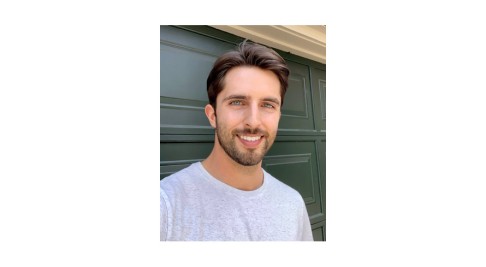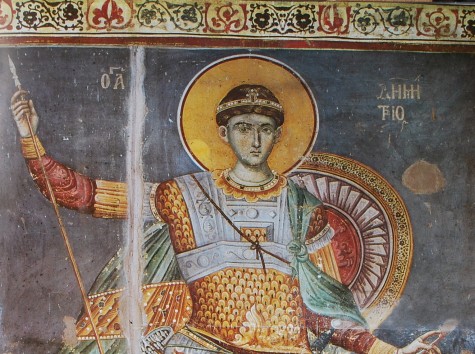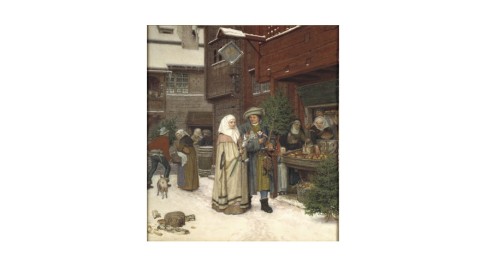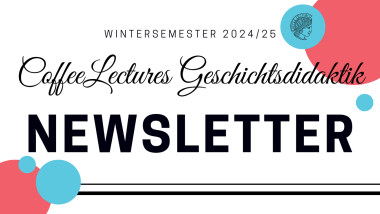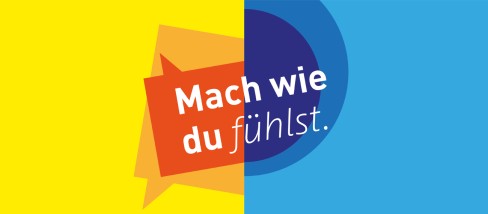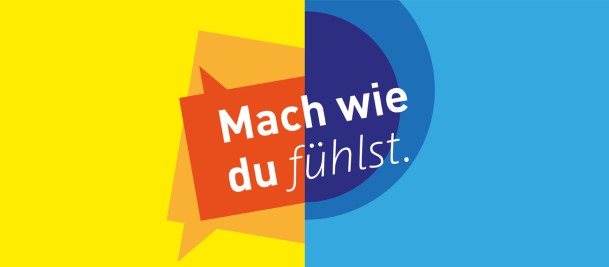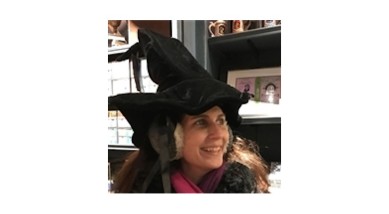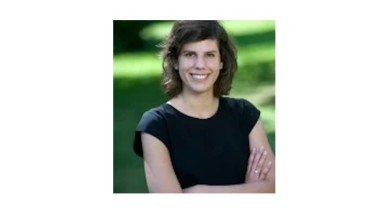-
![]() Source: https://zeitgeschichte-hamburg.de/dr-linde-apel.html
Source: https://zeitgeschichte-hamburg.de/dr-linde-apel.html![]() Source: https://zeitgeschichte-hamburg.de/dr-linde-apel.html
Source: https://zeitgeschichte-hamburg.de/dr-linde-apel.html3 February: A Final lecture for the seminar series
2025/01/24
“Oral History and the digital transformation. Some historical, ethical and methodological remarks” by Prof. Dr. Linde Apel
-
![]()
![]()
JOBANGEBOT: Sekretär:in / Assistenz (w/m/d), 50 % – unbefristet im Fachgebiet Alte Geschichte
2025/01/30
Bewerbungsfrist: 28.01.2025
-
![]() Picture: Chris Pandza | Source: https:// https://incite.columbia.edu/chris-pandza
Picture: Chris Pandza | Source: https:// https://incite.columbia.edu/chris-pandza![]() Picture: Chris Pandza | Source: https:// https://incite.columbia.edu/chris-pandza
Picture: Chris Pandza | Source: https:// https://incite.columbia.edu/chris-pandza“Curating large oral history archives with artificial intelligence” an open lecture by Chris Pandza on 20th January 2025
2025/01/17
On 20th Janury 14:25 (CET) Chris Pandza will give an open lecture on Curating large oral history archives with artificial intelligence as a part of the Voices Unbound: Lecture Series on Digital Oral History.
The abstract of the talk is as follows: Artificial intelligence (AI) presents new opportunities for assisted oral history curation—but also new pitfalls. What could the role(s) of AI be in the process of curation? Does AI necessarily reinforce its own biases on a collection, or can it help curators measure and mitigate their own biases? How does AI interact with the ethical and epistemological frameworks that shape oral history? Using real-world examples from the Ellis Island Oral History (National Park Service), Obama Presidency Oral History (Incite at Columbia University), and The Elders Project (Incite), I will demonstrate a number of innovative AI techniques that practitioners can use to prepare oral history collections for public use. In addition, I will demonstrate how AI can be used to make a project’s curation process more rigorous and inclusive.
-
![]()
![]()
„Märtyrer und Stadt im 4. und 5. Jahrhundert“
2025/02/10
Tagung an der TU Darmstadt, 19.–21. Februar 2025 im Lichtenberghaus
Der christliche Märtyrerkult war im 3. Jahrhundert ein geographisch wie lokal beschränktes Phänomen. Unter Kaiser Konstantin und im weiteren Verlauf des 4. und 5. Jahrhunderts erlebte er jedoch eine atemberaubende Entwicklung, deren Bedeutung für die Christianisierung weiter Teile der Bevölkerung des Imperiums wohl immer noch unterschätzt wird. Die Tagung nimmt multiperspektivisch die Schnittstellen zwischen Literatur, religiöser Praxis, Archäologie und Urbanistik in den Fokus, um diesen nur schwer erfassbaren Bereich der frühchristlichen Geschichte auszuleuchten. Dazu sollen verschiedene Fachdisziplinen miteinander ins Gespräch gebracht werden, darunter Alte bzw. Spätantike Geschichte, Theologie, Archäologie und Byzantinistik.
-
![]() Bild: Susanne Froehlich
Bild: Susanne Froehlich![]() Bild: Susanne Froehlich
Bild: Susanne FroehlichEinladung zur Antrittsvorlesung von Prof. Dr. Susanne Froehlich
2024/12/23
Donnerstag, 23. Januar 2025 um 16:15 Uhr, S3/13 Raum 30
Vortragstitel: „Die Frau auf der Athene-Karte. Eine Göttin als Role-Model vor zweieinhalbtausend Jahren und heute“
-
![]() Picture: he Christmas Fair by Georg von Rosen - 1872 - Nationalmuseum Sweden, Sweden - Public Domain. | Source: https://www.europeana.eu/item/2064116/Museu_ProvidedCHO_Nationalmuseum__Sweden_24400
Picture: he Christmas Fair by Georg von Rosen - 1872 - Nationalmuseum Sweden, Sweden - Public Domain. | Source: https://www.europeana.eu/item/2064116/Museu_ProvidedCHO_Nationalmuseum__Sweden_24400![]() Picture: he Christmas Fair by Georg von Rosen - 1872 - Nationalmuseum Sweden, Sweden - Public Domain. | Source: https://www.europeana.eu/item/2064116/Museu_ProvidedCHO_Nationalmuseum__Sweden_24400
Picture: he Christmas Fair by Georg von Rosen - 1872 - Nationalmuseum Sweden, Sweden - Public Domain. | Source: https://www.europeana.eu/item/2064116/Museu_ProvidedCHO_Nationalmuseum__Sweden_24400HDSM Newsletter. Issue 3
2024/12/20
Merry Christmas, Happy New Year and best wishes from all @ HDSM for a healthy, peaceful and prosperous 2025! HDSM would like to wish you a Merry Christmas and a Happy New Year filled with prosperity and abundance. May you be surrounded by love and warmth during this special time. HDSM Team is excited to announce the release of our December newsletter issue. This newsletter provides updates about the current projects of HDSM, new publications as well as recent and upcoming events. If you are interested in the more updates, please subscribe to our newsletter! (See link below)
-
![]() Bild: M. Grabarits
Bild: M. Grabarits![]() Bild: M. Grabarits
Bild: M. Grabarits9. Newsletter der Coffee Lectures Geschichtsdidaktik
2024/12/19
Im neunten Newsletter laden wir herzlich zu gleich zwei Coffee Lectures am 29. Januar 2025 ein: Zu Gast ist Dr. Franziska Conrad. Weiterhin rufen wir zum Mitspielen beim Planspielworkshop im Februar 2025 auf und berichten über den Besuch von Frau Grabarits im Studienseminar Darmstadt! Außerdem stellen wir die Webseite jugendopposition.de und die 2020 erschienene Dissertation “DDR-Geschichte im Klassenzimmer” vor.
-
![]() Picture: Michi/Pixabay
Picture: Michi/Pixabay![]() Picture: Michi/Pixabay
Picture: Michi/PixabayCfP: “Food Studies – Quo vadis?”
2024/12/18
Interdisciplinary potentials for the research of the food history of the Middle Ages
Research projects on nutrition are often labelled as food studies. But, what are food studies of the Middle Ages or respectively pre-modern times? The conference will consider examples that address current research projects and their methods as well as theoretical and methodological ideas for framing a pre-modern food history and thus sharpen the concept of food studies.
-
![]() Picture: Nathalie Fridzema. Image courtesy: https://www.rug.nl/staff/n.fridzema/?lang=en
Picture: Nathalie Fridzema. Image courtesy: https://www.rug.nl/staff/n.fridzema/?lang=en![]() Picture: Nathalie Fridzema. Image courtesy: https://www.rug.nl/staff/n.fridzema/?lang=en
Picture: Nathalie Fridzema. Image courtesy: https://www.rug.nl/staff/n.fridzema/?lang=en17 December: An open lecture online by Nathalie Fridzema “Researching the Early Dutch Web: Digital Methods for Historical and Historiographical Objectives in Internet Studies”
2024/12/13
Nathalie Fridzema is a PhD candidate at the University of Groningen specializing in early Dutch web cultures and digital heritage. She has a bachelor and (research) master in Media Studies with a minor in Digital Humanities. Whilst working as research assistant together with Prof. Dr Susan Aasman on a preliminary web project, Nathalie delved into internet provider XS4ALL and personal homepages. These pilot studies formed the foundation for her ICOG PhD project at the Centre for Media and Journalism Studies in Groningen. The objective of the PhD project is to create a cultural history of web practices before web 2.0, specifically in the Netherlands between 1994 and 2004. This period of the preliminary web – characterized by idealistic initiatives adhering to utopian ideals like participatory democracy, freedom, and accessibility – is often overshadowed by the swift development of platforms and social media. In this project, Nathalie will take a critical look into this influential period, focusing on the everyday user and website maker.
-
![Mach wie du fühlst]() Bild: Bild: hobit.de
Bild: Bild: hobit.de![Mach wie du fühlst]() Bild: Bild: hobit.de
Bild: Bild: hobit.deDas Institut für Geschichte auf der Hobit Talk 2025
2024/12/12
Am Donnerstag, 23.01.2025, 10:00 bis 11:00 Uhr
Auch in diesem Jahr präsentiert sich das Institut für Geschichte der TU Darmstadt beim Hobit Talk
-
![]() Picture: Dr. Almila Akdag Salah. Image courtesy: https://www.uu.nl/staff/AAAkdag
Picture: Dr. Almila Akdag Salah. Image courtesy: https://www.uu.nl/staff/AAAkdag![]() Picture: Dr. Almila Akdag Salah. Image courtesy: https://www.uu.nl/staff/AAAkdag
Picture: Dr. Almila Akdag Salah. Image courtesy: https://www.uu.nl/staff/AAAkdag“Breathing Emotions & Stories: A different way of navigating Oral History Archives”- an open lecture by Dr. Almila Akdag Salah on 16 December
2024/12/06
Last “Voices Unbound” Seminar for 2024: on 16 December Dr. Almila Akdag Salah will give an open lecture on Breathing Emotions & Stories: A different way of navigating Oral History Archives. This event is a part of a lecture series co-organised by TU Darmstadt, University College London, Luxembourg Centre for Contemporary and Digital History (C²DH) and the Max-Planck-Institut für Wissenschaftsgeschichte. The series is convened by Julianne Nyhan (TU Darmstadt), Andrew Flinn, Andreas Vlachidis, and Marco Humbel (UCL), Shih-Pei Chen (Max Planck Institute), and Gerben Zaagsma (C²DH), offering an important way of keeping up to date with the methodological and theoretical state of the art in digital oral history.
-
![]() Picture: Dr. Norah Karrouche. Image courtesy: | Source: https://research.vu.nl/en/persons/norah-karrouche
Picture: Dr. Norah Karrouche. Image courtesy: | Source: https://research.vu.nl/en/persons/norah-karrouche![]() Picture: Dr. Norah Karrouche. Image courtesy: | Source: https://research.vu.nl/en/persons/norah-karrouche
Picture: Dr. Norah Karrouche. Image courtesy: | Source: https://research.vu.nl/en/persons/norah-karrouche“Can Oral History Data be FAIR?” an open online lecture by Dr. Norah Karrouche on 2 December
2024/11/29
Dr. Norah Karrouche (Vrije Universiteit Amsterdam, NL) gives an open lecture ‘Can oral history data be FAIR? Lessons learnt from building a digital infrastructure for oral history in the Netherlands‘ next Monday, 2 December at 14:25 (CET), as a part of the Voices Unbound: Lecture Series on Digital Oral History.
-
Simulation game workshop on Tuesday, 18 February 2025 10 a.m. – 5 p.m. TU Darmstadt
2024/11/22
Playing and reflecting on the historical diversity simulation game Constantinople – Kapalı Çarşı together
That's the point: To what extent can simulation games be used to teach democracy and diversity skills? How can the simulation game method be used in school lessons, especially in the subject of history? To what extent is history used in the simulation game Constantinople – Kapalı Çarşı?
-
![]() Picture: Maja Bobar
Picture: Maja Bobar![]() Picture: Maja Bobar
Picture: Maja BobarResumption of Darmstadt discussions in spring 2025
2024/11/22
Young academics from all fields of ancient studies discuss
After a temporary interruption, the tradition of the Darmstadt Discussion will be resumed in spring 2025. The established format invites early career researchers from all fields of ancient studies to present and discuss their projects with each other. The eleventh Darmstadt Discussions will take place from 31 March to 2 April.
-
![]() Picture: Dr. Hicks privat
Picture: Dr. Hicks privat![]() Picture: Dr. Hicks privat
Picture: Dr. Hicks privat11 November: an open lecture “Intersectional Feminist Perspectives on Digital Museum Collections through Counterdata Visualisations” by Dr. Michael Townsen Hicks
2024/11/08
HDSM is excited to share the news that next Monday, 11 November 14:25 (CET), Dr. Michael Townsen Hicks will give a talk on “Intersectional Feminist Perspectives on Digital Museum Collections through Counterdata Visualisations” as a part of the Voices Unbound: Lecture Series on Digital Oral History. A lecture series co-organised by TU Darmstadt, University College London, Luxembourg Centre for Contemporary and Digital History (C²DH) and the Max-Planck-Institut für Wissenschaftsgeschichte.
Institute of History
Archive
Archive






